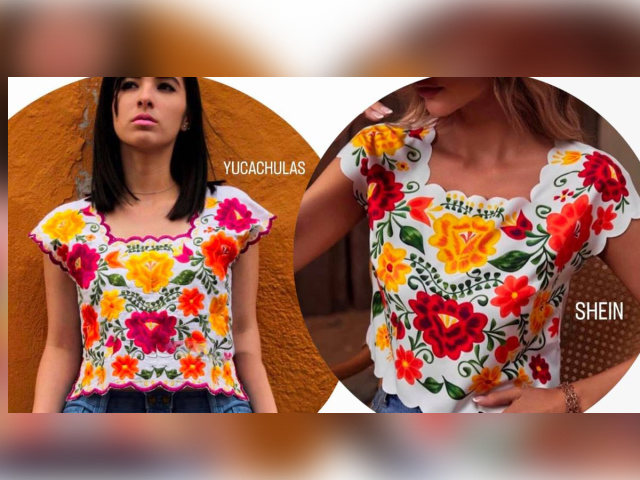Chinese online fashion retailer Shein said on Thursday it will stop selling a garment that incorporated Mayan “cultural elements” in its design, according to the Mexican Culture Ministry.
“The Culture Ministry said some details of Shein’s ‘Fan-Trim Top with Floral Print’ were similar to a traditional huipil embroidery made in 2017 by an artisanal clothing brand from southeastern Mexico,” Reuters explained.
“These designs have been passed down from generation to generation, so they are the product of a collective creativity corresponding to the Mayan people,” the ministry said in a letter of complaint to Shein.
“They represent not only their natural surroundings, but they also form part of their cosmovision, because they are related to the joy of living, they reflect their emotions and feelings, and thus they form part of their identity as Maya people and Mayan culture,” the Mexican ministry said.
The Mexican artisanal brand that created the earlier design, Yucachulas, said it was “deeply saddened” by the Chinese company’s “lack of recognition for the work of artisans who dedicate themselves to this job and make their living from handicrafts.”
Yucachulas posted some images of the Shein blouse on social media to demonstrate that it very strongly resembled their creation from 2017:
Shein responded on Thursday by saying the garment has been removed from its growing online store.
“It is not our intent to infringe anyone’s valid intellectual property and it is not our business model to do so,” Shein said.
The Mexican government has been increasingly critical of foreign brands for “unwarranted cultural appropriation” from indigenous peoples, including major international names like U.S.-based Carolina Herrera, Zara of Spain, and France’s Isabel Marant. Isabel Marant apologized for using traditional indigenous patterns in its designs after complaints from Mexico in 2020, although the company insisted it meant no disrespect.
The Chinese Communist Party is notorious for using its economic leverage over Western companies to control their behavior, for example by forcing them to obey Chinese speech codes or back down from human rights confrontations. The practice is known as “sharp power,” and there is some schadenfreude in a Chinese company winding up on the wrong end of it.
Speaking of human rights, Shein was accused of discriminating against racial minorities in its hiring practices in August 2021, after foreign media noticed the company placing wanted ads that said minority candidates need not apply, including Uyghur Muslims. The ads also sought to entice job seekers by claiming they would not be subjected to coronavirus testing, even at the height of the pandemic. Shein representatives claimed the ads were “fraudulently” placed in the company’s name by unknown troublemakers.
Last month, Fortune observed that Shein’s business model – in which the fast-growing online retailer ships items directly to individual customers around the world – could help the $100 billion fashion startup evade the Uyghur Forced Labor Prevention Act (UFLPA), a U.S. law that took effect in June barring imports that might be tainted with forced labor.
The UFLPA will be much easier to enforce against bulk container shipments than countless small packages and shipping envelopes sent directly to website customers. Fortune pointed out that Shein has been evading U.S. import taxes since 2016 by taking advantage of de minimus limits that waive the taxes on shipments valued at $800 or less.
Enforcing the U.S. law at the source is impossible, because the Chinese government does not allow foreign observers to monitor its factories, especially those in Uyghur home province of Xinjiang.
Shein claims it requires its textile suppliers to refrain from using forced labor, but the company issued a report in 2021 that admitted at least 12 percent of its suppliers have committed multiple major health, safety, and environmental infractions, including the use of forced labor.

COMMENTS
Please let us know if you're having issues with commenting.